Find materials (educational videos/podcasts, guidelines, e-learning platforms…) in the field of digital interculturality and post your own resources. Our database allows you to search for resources by title, keyword, author, and year.
Machine Against the Rage
keywords:
Institut für Demokratie und Zivilgesellschaft (IDZ)
Platform
Language(s): German
Die Digitalisierung verändert, wie wir Wissen erwerben und uns eine Meinung bilden. Gerade für pädagogische Fachkräfte stellt sich die Frage, wie sie die damit verbundenen Debatten erfolgreich navigieren und vermitteln. Dieses Informationsangebot bietet Orientierung: Es bündelt zentrale wissenschaftliche Erkenntnisse und ordnet sie ein. Verlässlich, verständlich und praxisnah beantwortet es entlang von Schwerpunktthemen wichtige Fragen zu Wissen und Wahrheit in digitalen Öffentlichkeiten.
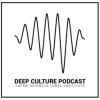
Expanding Your Circle of Empathy | Deep Culture Podcast
(2024)
keywords:
Ishita Ray
,
Joseph Shaules
Podcast
Language(s): English
How do we learn to look at the world from a new cultural perspective? In this episode Joseph Shaules and Ishita Ray argue that expanding our circle of empathy is more difficult than it might seem. Empathizing across cultures is effortful and can make us question our values and identity. Listen as Sanne Bosma, Emre Seven, Liu Liu and Torhild Liane Harr Skarnes share stories of their empathic adventures.
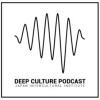
Language Learning: More than a Code | Deep Culture Podcast
(2025)
keywords:
Ishita Ray
,
Joseph Shaules
Podcast
Language(s): English
Are you frustrated with language learning? It’s no surprise! Join Joseph Shaules and Ishita Ray as they explore why foreign language learning is both frustrating and life-changing. They explore the deep connection between language and culture, and the embodied nature of linguistic processing. We hear personal stories about the pleasures and pitfalls of navigating new linguaculture worlds from Bridget van de Grootevheen, Ade Putri Verlita Maharani, Makiko Endo Kimura, Emre Seven and Torhild Liane Harr Skarnes.
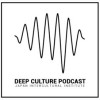
Love Across Cultures | Deep Culture Podcast
(2025)
keywords:
Joseph Shaules
,
Torhild Liane Skårnes
Podcast
Language(s): English
Is love the same all over the world? Join Lia (Torhild Liane Skårnes) and Joseph Shaules as they discuss the excitement and challenges of intercultural relationships. We learn how cultural difference can catch us off guard because our of cognitive “autopilot”. We explore cultural differences in communication, child-rearing, gender expectations, and more. Stories from Kasia (Katarzyna Grzesik-Harz), Emre Seven, Sanne Bosma and Ishita Ray.
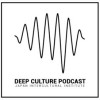
Evolution: How Culture Made Us Human | Deep Culture Podcast
(2025)
keywords:
Ishita Ray
,
Joseph Shaules
Podcast
Language(s): English
Why do we have weak stomachs and big brains? How is our cognition different from chimpanzees? Join Ishita Ray and Joseph Shaules as they explore how culture has shaped genetic evolution. Millions of years ago, as culture became increasingly key to human survival, a chain reaction of culture-genetic evolution reshaped our body, brain and mind—culture made us human. Based on the work of evolutionary biologist Joseph Henrich.
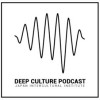
Personality and Culture—Deep Connections | Deep Culture Podcast
(2025)
keywords:
Joseph Shaules
,
Torhild Liane Skårnes
Podcast
Language(s): English
Are you a different person when speaking another language? Does being bicultural mean you have two personalities? In this episode, Joseph Shaules and Torhild Liane Skårnes Harr explore the challenges of being true to yourself and adjusting to different cultural worlds. Emre Seven, Sanne Bosma and Ishita Ray share stories about adjustment stresses and uncommon connections.
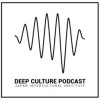
Tightness and Looseness | Deep Culture Podcast
(2025)
keywords:
Joseph Shaules
,
Sanne Bosma
,
Torhild Liane Haars Skarnes
Podcast
Language(s): English
Is it okay to kiss on a bus? Some societies are more strict about social norms—they are more tight—whereas others are more loose. In this episode, Joseph Shaules, Torhild Liane Haars Skarnes and Sanne Bosma discuss research into tightness and looseness. We compare the rankings of different countries, including some we find surprising. We argue that the key to navigating foreign norms is learning the values behind them, and we hear stories from Emre Seven, Yuto Aki, Vanessa Eisenberg, Hashini Madarasinge, Albert Mhangami and Ishita Ray.
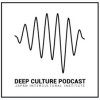
(Rerun) Gender and Culture: Expectations | Deep Culture Podcast
(2025)
keywords:
Ishita Ray
,
Join Joseph Shaules
,
Yvonne van der Pol
Podcast
Language(s): English
We are rerunning this episode with a new intro and information about teaching materials! Is gender cultural? Oddly, gender is rarely mentioned in intercultural education, even though expectations about being a man or woman vary widely around the world. Join Joseph Shaules, Yvonne van der Pol and Ishita Ray as they explore cultural assumptions about gender. Emre Seven and Zeina Matar share their experiences navigating different gender worlds, and we also learn about research into gender attitudes.

MKV-podden Ep. 44: Det postdigitala
(2025)
keywords:
Ingrid Forsler
,
Petar Jandrić
Podcast
Language(s): English
We talk about the post-digital era and the education of the future with Petar Jandrić, Zagreb University of Applied Science, and Ingrid Forsler, Södertörn University. We read their two new publications on the subject. Ingrid reflects on the Style Council.
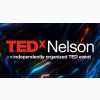
The surprising paradox of intercultural communication | Helena Merschdorf | TEDxNelson
(2022)
keywords:
Helena Merschdorf
,
TEDxNelson
Video
Language(s): English
What if English as the global lingua franca is both our greatest asset and biggest downfall in intercultural communication?
While the idea of a global language is appealing – especially in the age of globalisation – it often creates “invisible misunderstandings”. This can lead to harmless awkwardness in the best case or have dire political, economic, and social impacts in the worst case. In this talk, Helena explores where these misunderstandings come from, and how can we work to avoid them. Helena is a social scientist, GIS analyst, translator, and writer, working at the interface of linguistics and technology. Growing up bilingually and between two cultures, it didn’t take Helena long to recognise the perils of intercultural (mis)communication – and decide to do something about it. She soon made it her mission to understand the complex interplay of language and culture, leading her to obtain master’s degrees in both translation studies and geographic information science. She is currently pursuing her PhD in GIScience, where her research examines how linguistic bias impacts our understanding of global human phenomena. This talk was given at a TEDx event using the TED conference format but independently organized by a local community. Learn more at https://www.ted.com/tedx

Die Zukunft der Verwaltung ist agil - Warum wir eine agile Verwaltung brauchen
(2023)
keywords: intercultural competence, agility, thuringia
Thüringer Zentrum für Interkulturelle Öffnung
Video
Language(s): Deutsch
Die agile Verwaltung als nächster sinnloser Trend? Das sieht Helena Klöhr, Expertin für die agile, interkulturelle Verwaltung, anders. In ihrem Vortrag erklärt sie, warum es ihrer Meinung nach eine agile Verwaltung braucht und welche Herausforderungen das birgt. Helena Klöhr war Teil des Teams des Thüringer Zentrums für Interkulturelle Öffnung und hat an vielen Formaten der Reihe VielFalter* mitgewirkt und diese maßgeblich entwickelt (https://thueringer-zentrum-ikoe.de/vi.... In diesem Input stellt Klöhr ihre Forschungserkenntnisse zur agilen Verwaltung vor, gibt konkrete Handlungsempfehlungen und stellt den Zusammenhang zwischen agiler interkulturellen Verwaltung dar.
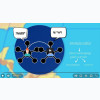
Virtuelle interkulturelle Planspiele
(2022)
keywords: virtual, interculturality, games
interculture.de e.V.
Video
Language(s): German
Wie können internationale Gruppen zusammengebracht werden? Wie kann in internationalen Gruppen eine gemeinsame Kultur entstehen angesichts unterschiedlicher Mindsets, Kommunikationsgewohnheiten, Sprachen und Zeitverschiebung? Das Video klärt - vor dem Hintergrund sehr gelungener Theorieeinschübe - wie dies funktionieren kann.
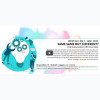
SAME SAME BUT DIFFERENT? Interkulturalität trifft Diversität
(2023)
keywords: interculturality, diversity
interculture.de e.V.
Video
Language(s): Deutsch
Im Webtalk erklären und diskutieren die beiden BerufspraktikerInnen Barbara Nietzel (Interculture e.V.) und Catharina Crasser (D² Denkfabrik Diversität) die Konzepte Interkulturalität und Diversität. Dabei stellen sie die Konzepte neben einander, erkennen Gemeinsamkeiten und Unterschiede und fragen sich, wie die Theorie in der Trainingspraxis umgesetzt werden kann.

Interkulturelle Trainings digital gedacht
(2020)
keywords: intercultural training, digital
interculture.de e.V.
Video
Language(s): German
Wie wirken sich digitale Medien auf Lernprozesse aus? Ausgehend von Bloom's Lerntaxonomie stellt das Video Schritte der didaktischen Konzeption digitaler Lernmaterialien dar. Ein Educast von M.Köhlert, M.Schütt und S.Zöller (Universität Jena, Bereich Interkulturelle Wirtschaftskommunikation).
Ausgangspunkte und Perspektiven. Das Projekt deras_on im Überblick
(2025)
keywords: digitale Radikalisierung, Deradikalisierung, Extremismusprävention
Daniel Speer
,
Sofia Hernández
,
Tila Mendonça
Other type
Language(s): german
Das Projekt deras_on – Deradikalisierung Antisemitismus Online erprobt Ansprachen bei antisemitischen und rechtsextremen Äußerungen in den
Kommentarspalten von Instagram und TikTok. Die Handreichung fasst die Impulse des Projektes zusammen.

Gesellschaft im Wandel - die Autorin Zhang Yueran über Erinnerung und das heutige China | böll.podcast
(2025)
keywords:
,
Zhang Yueran
Podcast
Language(s): German
Zhang Yueran ist eine der wichtigsten literarischen Stimmen Chinas. In ihren Romanen Cocoon und Schwanentage erkundet sie familiäre und gesellschaftliche Konfliktlinien, thematisiert Schuld, Erinnerung und Verantwortung. Im Gespräch reflektiert sie über China im Umbruch, über Generationenkonflikte und transgenerationales Trauma. Wie schafft sie es in Romanform mit der Kulturrevolution umzugehen und was hat chinesische Geschichte mit einer Pizza zu tun? Und warum müssen Feminismus und Me Too in China zusammen mit sozialer Ungerechtigkeit gedacht werden? Antworten darauf gibt es im Böll-Podcast. Anschließend ordnet die Literaturkritikerin Katharina Borchardt Chinas unterschiedliche literarische Epochen ein und erklärt den Unterschied zu Literatur aus Japan und Südkorea.
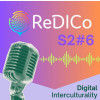
Social E-maginaries, the Internet and German Windows: A Conversation with Yolanda López García | ReDICo: Podcast for Digital Interculturality
(2025)
keywords: Digital Communication
Fergal Lenehan
,
Luisa Conti
,
Yolanda López García
Podcast
Language(s): English
In the sixth and final episode of the series Fergal Lenehan and Luisa Conti, from the Centre for Digital Interculturality Studies, talk to Yolanda López García from the Technical University of Chemnitz, where she is Junior Professor for Intercultural Praxis with a Focus on Digital Cultures at the Institute for German and Intercultural Communications. The conversation touches on viewing interculturality as an emerging imaginary, Yolanda’s work on digital influencers in Germany and their so-called “migratory experience”, the case of German windows, the obsession with lüften (airing an apartment or house), and Yolanda’s theoretical concept of the “e-maginary”.
So, will intercultural digital influencers eventually replace guidebooks and intercultural trainings?
Listen to find out!
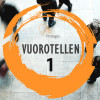
Communicating interculturality | Vuorotellen
(2021)
keywords:
Kaisa Laitinen
,
Malgorzata Lahti
,
Margarethe Olbertz-Siitonen
Podcast
Language(s): English
Intercultural communication is often understood as something that takes place whenever different cultural backgrounds collide and are manifested in social interaction. Although common, this perspective might very well lead to dangerous stereotypes and assumptions, to highlight differences instead of building common ground. In this episode, Kaisa Laitinen (University of Jyväskylä) invites Malgorzata Lahti and Margarethe Olbertz-Siitonen (University of Jyväskylä) to shake up various viewpoints regarding intercultural communication. The episode is in English.

Kulturelle Unterschiede im Coaching – was passiert, wenn unsere westliche Haltung nicht passt? | COACHINGBANDE
(2025)
keywords: Coaching, Interculturality
Astrid Kellenbenz
,
Susanne Henkel
Podcast
Language(s): German
In der heutigen Podcastfolge tauchen wir tief ein in ein Thema, das oft übersehen wird – aber essentiell ist, wenn wir gute Coaches sein wollen: kulturelle Unterschiede im Coaching.🌍
Denn was für uns ganz selbstverständlich erscheint – zum Beispiel, dass wir Menschen individuell nach ihren Zielen fragen – kann für andere Menschen völlig befremdlich oder sogar übergriffig wirken.🤔
Wir sprechen über die westlich geprägten Grundannahmen im Coaching – wie Individualismus, Selbstreflexion, direkte Kommunikation und flache Hierarchien – und darüber, warum diese Haltung nicht immer passt.
Denn: Deutschland ist kulturell vielfältiger als je zuvor. 🇩🇪🧕🏾👨🏻🦳🌈
Und nicht nur Herkunft oder Religion spielen dabei eine Rolle – auch Milieus, Generationen und soziale Prägungen beeinflussen unser Denken und Handeln.
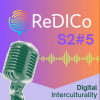
Connectivity and Culture: Digital Anthropology in Rural Argentina | ReDICo: The Podcast for Digital Interculturality
(2025)
keywords:
Fergal Lenehan
,
Luisa Conti
,
Martina Di Tullio
Podcast
Language(s): English
In the fifth episode of the series Luisa Conti and Fergal Lenehan, from the Centre for Digital Interculturality Studies, talk to Martina Di Tullio, an archaeologist and anthropologist based in Argentina who has undertaken extensive scholarly work together with rural Indigenous communities in Northwestern Argentina in relation to Internet usage. The conversation touches on Internet provision in rural Argentina, its impact on the researched communities as well as challenges towards digital sovereignty .
So, what – according to Martina – is the future of the Internet in Indigenous communities?
Listen to find out!
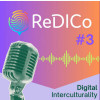
Online community-building among the Nigerian-LGBTQI+ community | ReDICo: The Podcast for Digital Interculturality
(2024)
keywords:
Anna Finzel
,
Bisi Alimi
Podcast
Language(s): English
In the third episode of the "ReDICo Podcast”, Anna Finzel and activist Bisi Alimi discuss the challenging situation of the LGBTQI+ community in Nigeria, where same-sex relationships are still criminalized.
LGBTQI+ activist Bisi Alimi shares insights on the legal landscape, his personal experiences, and the critical role online communities play for marginalized individuals. Alimi emphasizes the importance of self-acceptance, fighting for LGBTQI+ rights, and supporting cross-border activism. He explains how social media platforms like WhatsApp, Instagram, and Facebook have become safe spaces for the LGBTQI+ community in Nigeria, despite ongoing risks and challenges. Alimi also reflects on his public coming-out and his return to Nigeria, highlighting the significance of solidarity and the ongoing struggle for freedom, a fight that must be earned through perseverance.
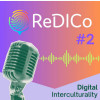
The Fundamental Error | ReDICo: The Podcast for Digital Interculturality
(2024)
keywords:
Luisa Conti
,
Roman Lietz
Podcast
Language(s): English
In this episode, Luisa Conti and Roman Lietz explore how individuals and communities are evolving in a postdigital and globalized society.
We begin with a reflection on the freedom of movement that characterizes the digital space: our plural and dynamic identities unfold day by day, click by click, in a culturally hybrid space where the local becomes increasingly less relevant and defining. However, even in the digital space we are confronted with limits: picking up the discussion from the first episode, we examine key factors that frame our (inter)actions online. While some of these apply to everyone, such as algorithms, others manifest themselves in varying ways: introducing a multi-dimensional understanding of the 'digital divide', we give hints about how the quality of postdigital life differs between people. This difference is rooted in social inequalities which, we argue, are both reproduced and actively reinforced in the digital space, not least through the discourses that emerge in anti-pluralist filter bubbles, which gain power by offering simplistic explanations for complex phenomena. After describing the mechanism we have observed in social media, we reflect on the importance of intercultural competence in dealing constructively with unfamiliarity and uncertainty. After presenting a new understanding of intercultural competence, we conclude the podcast with a call to rethink the internet as a whole.
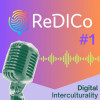
The Patchwork of Platforms | ReDICo: The Podcast for Digital Interculturality
(2024)
keywords: Intercultural Communication, Digital Communication
Fergal Lenehan
,
Yolanda López García
Podcast
Language(s): English
In this episode of the ReDICo Podcast, Fergal Lenehan and Yolanda López García explore key concepts of digital intercultural communication. At the heart of the discussion is postdigitality, which highlights the merging of the analog and digital worlds.
Platforms play a crucial role in this postdigital era and are transforming our everyday reality. A major focus of the discussion is how algorithms can shape our freedom. The episode emphasizes the importance of questioning their influence critically and engaging with them consciously. We also delve into postdigital cosmopolitanism, which promotes openness to the world and solidarity across national borders. The concept of "agency" – individual power to act – is re-examined in the context of digital intercultural communication. Finally, the episode offers a preview of the next topic, where identity and culture will take centre stage.
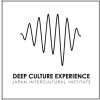
Who Needs Intercultural Education? | Deep Culture Experience
(2024)
keywords: Interculturality, Deep Culture
Ishita Ray
,
Joseph Shaules
Podcast
Language(s): English
Joseph Shaules and Ishita Ray argue that the deeper goal of intercultural education is to see that our minds are shaped by culture. They explore natural biases, such as ethnocentrism and stereotypes, and the psychological impact of foreign experiences, including Oz moments and cultural shock. Emre Seven tells of his discovery that not everyone sees the world as he does.
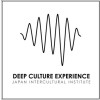
Beyond WEIRD (Part 1): Approaches to Intercultural Education | Deep Culture Experience
(2024)
keywords: Interculturality, Deep Culture
Emre Seven
,
Ishita Ray
,
Joseph Shaules
Podcast
Language(s): English
Intercultural education is sometimes criticized as being too WEIRD–Western, Educated, Industrialized, Rich and Democratic. But what does that mean? In this two-part episode, Joseph Shaules, Ishita Ray and Emre Seven trace the origins of the term WEIRD to the work of Joseph Henrich. He argues that people from WEIRD countries are psychological outliers. We hear Liu Liu reflect on the challenges of adjusting to WEIRD psychology, and discuss how intercultural education has been influenced by its WEIRD roots.
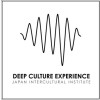
Beyond WEIRD (Pt 2): Deep Culture Learning | Deep Culture Experience
(2024)
keywords: Interculturality, Deep Culture
Ishita Ray
,
Joseph Shaules
Podcast
Language(s): English
What does it mean to “learn” a culture? In this episode, Joseph Shaules and Ishita Ray talk about how insights from cultural psychology can help us answer this question. We learn about embodied culture, predictive processing, and how our intuitive mind learns new patterns of perception. We find out the four key insights that we need for deep cultural learning. This is Part 2 of the Beyond WEIRD episode.
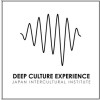
What Happened to the Global Village? | Deep Culture Experience
(2025)
keywords: Interculturality, Deep Culture
Ishita Ray
,
Joseph Shaules
Podcast
Language(s): English
What happened to the global village? Joseph Shaules and Ishita Ray compare the original vision of a unified global village with the realities of today’s fragmented digital world. They explore the psychological impact of virtual interaction, and compare it with life in a real village. We hear about navigating the complexities of today’s global village, and how to achieve deeper forms of intercultural understanding, from podcast contributors: Yuto Aki, Skirmantė Cairns, Vanessa Eisenberg, Hashini Madarasinge, Albert Mhangami, Sanne Bosma, Torhild Liane Haar Skarnes and Emre Seven.
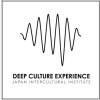
Is Culture Real? | Deep Culture Experience
(2025)
keywords: Interculturality, Deep Culture
Ishita Ray
,
Joseph Shaules
Podcast
Language(s): English
Cross-cultural researcher Geert Hofstede famously said “Culture does not exist”. He saw culture is an abstraction—a statistical construct to label group tendencies. In this episode, Joseph Shaules and Ishita Ray contrast this view with the many ways in which culture is embodied with us. We learn about embodied cognition and hear stories about our deeply cultural nature from Sanne Bosma, Emre Seven, Albert Mhangami, Hashini Madarasinge and Yuto Aki.
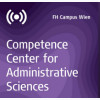
Opposing digitality and AI: citizens' practices
(2025)
keywords:
Julia Dahlvik
Podcast
Language(s): English
In this episode we explore a topic that has come up in all our case studies in the different world regions, even though in different forms, namely opposition and resistance to the state’s increasing use of digital tools and AI. From South Africa to Canada, from the Caribbean to South Korea – everywhere there are at parts of the population that do not necessarily agree with how their public administration digitalizes and automates its services. Scholars agree that modern society functions as a complex human-machine social system, where machines are not merely tools but active participants in shaping social outcomes. This presumption becomes particularly prevalent in the context of citizen-state interaction, where a power imbalance is already inscribed. In this episode we thus look at citizens’ resistant practices vis-à-vis governments’ use of technology.

How digitality is changing our spaces
(2025)
keywords:
Dale Southerton
,
Professor Theordore Schatzki
Podcast
Language(s): English
Space is a key feature of social life. But does the digitalisation of society affect its spatial dimensions, and if so, how?
In this podcast, Leverhulme Visiting Professor Theodore Schatzki discusses his work exploring digitality, different types of space and notions of virtual realities, such as cyber space.
This podcast is brought to you by the Centre for Sociodigital Futures – a flagship research centre, funded by the ESRC and led by the University of Bristol in collaboration with 12 other Universities in the UK and globally. The support of the Economic and Social Research Council (ESRC) is gratefully acknowledged.
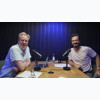
Beyond the Duopoly: Researching Brazilian AI | ReDICo: The Podcast for Digital Interculturality
(2025)
keywords:
Emilian Franco
,
Fergal Lenehan
,
Luisa Conti
Podcast
Language(s): English
In the fourth episode of the "Internet Futures" series Luisa Conti and Fergal Lenehan talk to Emilian Franco from the University of the Bundeswehr in Munich, where he is a lecturer and a PhD scholar. Emilian talked about his research dealing with the production of Artificial Intelligence in Brazil. The conversation touched on the landscape of Brazilian AI, how cultural anthropologists research Artificial Intelligence, the metaphors of ‘devouring’ and ‘eating’, and Emilian’s research experiences in Brazil.
So, is a critical and interculturally competent AI likely, and could it perhaps be produced in Brazil?
Listen to find out!
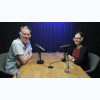
Punk’s Not Dead: The Solarpunk Movement and the Internet | ReDICo: The Podcast for Digital Interculturality
(2025)
keywords:
Fergal Lenehan
,
Luisa Conti
,
Mareike Schütt
,
ReDICo
Podcast
Language(s): English
In the third episode of the "Internet FUtures" series Fergal Lenehan and Luisa Conti, from the Centre for Digital Interculturality Studies, talk to Mareike Schütt, a lecturer and PhD scholar at the University of Jena in Germany. The conversation touches on the subject of Mereike’s PhD research, namely the Solarpunk movement – what this is, where it can be found, how Mareike is researching it and, indeed, if it can really be termed a movement at all.
So, how does the Solarpunk ‘movement’ relate to the scholarly area of Intercultural Communications, and how do Solarpunks imagine the future of the Internet?
Listen to find out!
Photo: Studio Schumann
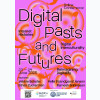
Conference “Digital Pasts and Futures: Internet Histories, Digital Interculturality and Reimagining Digitality” (June 2025) - recorded presentations
(2025)
keywords:
Fergal Lenehan
,
Luisa Conti
,
ReDICo
Video
The fourth ReDICo conference “Digital Pasts and Futures: Internet Histories, Digital Interculturality and Reimagining Digitality” took place online 23-24 June 2025. It brought together scholars who engage with internet histories, digital futures and digital interculturality so as to initiate a discussion regarding the reimagining of digitality. It featured wide and interdisciplinary approaches that go beyond the presentism that often marks media and communication studies, while also engaging with alternative visions of how digitality can be construed, not least from an intercultural perspective.
Recordings of the following presentations are available on ReDICo's youtube channel:
• Helle Strandgaard-Jensen (University of Aarhus) Inter-linked Imaginaries and the Early Web for Kids
• Martin Munke (Saxon State and University Library Dresden/Dresden University of Technology)
The Paradox of Place, or: Digital Boundaries in a Borderless World? Regional History Web Portals as Media of Transregionality and Transculturality
• Anna Nacher (Jagiellonian University, Kraków) Digital Infrastructures at the End of the World: What has Melted into the Air, Needs to be Re-Captured
• Emilian Franco (Bundeswehr University Munich) AI and Interculturality: The Brazilian Discourse on AI Development
• Freyja van den Boom (University of Antwerp) Reimagining Digitality Through Causal Layered Tetrad Analysis (CLTA): A Critical Framework for AI Governance
• Ekaterina Senina (Hochschule Hamm-Lippstadt)
The Yoshi-P Effect: Parasocial Relationships and In-Game Culture in Final Fantasy XIV
• Luisa Conti (University of Jena) The – Possibly Transformative – Digital Transformation of Education
• Tomás Cajueiro (independent scholar) Decolonizing Digital Geographies: Journalism and the Creation of possible Imaginaries
• Yolanda López García (Chemnitz University of Technology) Content Creators and the Reconfiguration of Digital Interculturality
• Ethan Zuckerman (University of Massachusetts Amherst) The Quotidian Web: The Long Tail of Online Video and the Accidental Archive
• Valérie Schafer (University of Luxembourg) Revisiting Internet Histories through Interculturality
• Nathalie Fridzema (University of Groningen) and Anya Shchetvina (Humboldt University Berlin)
Nostalgia, DIY, and Internet Critique: The Emergence of the ‘Vernacular Web’ as an Imaginary of Alternative Digital Futures
• Julia Polyck-O’Neill (Memorial University of Newfoundland) Epistemic Uncertainty: ‘Junk Data,’ Digital Futures, and the Intercultural Limits of Big Data Management in the Artist Archive
• Tess McNulty (University of Illinois Urbana-Champaign) The Uplifting Anecdote: On the Long Pre-History of a Major Viral Genre
• Martina Di Tullio (University of Buenos Aires) Rooting the Internet: A Local History of Communication Practices in Rural-Indigenous Jujuy Puna (Argentina)
• Y. Silverman (Northwestern University – Civic Education Project) A Transformative Autoethnographic Analysis of Acquaint.org’s Platform
• Mareike Schütt (University of Jena) The Solarpunk movement as a transcultural force reimagining global connectivity, digital inclusivity, and ecological sustainability
• Andrew Bailey (Concordia University) Archiving the Self: MaddyMakesGames.com and the Digital Memory of Indie Game Development
• Ramesh Srinivasan (University of California, Los Angeles) Beyond Fragmentation – A Path for Technology to Support our Collective Futures
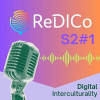
Back to the Future? The Vernacular Web | ReDICo: The Podcast for Digital Interculturality
(2025)
keywords:
Anya Shchetvina
,
Fergal Lenehan
,
Luisa Conti
,
Nathalie Fridzema
,
ReDICo
Podcast
Language(s): English
This is episode 2 of the podcast season "Internet Futures". In this episode Luisa Conti and Fergal Lenehan, from the Centre for Digital Interculturality Studies, talk to Nathalie Fridzema from the University of Groningen in the Netherlands and Anya Shchetvina from the Humboldt University of Berlin in Germany. Nathalie and Anya are PhD scholars and historians of the Internet, who presented a paper at the ReDICo-Conference in June 2025 called “Nostalgia, DIY and Internet Critique: The Emergence of the Vernacular Web as an Imaginary of Alternative Digital Futures.” The conversation touches on the vernacular web and what exactly this is, platforms dealing with the past of the Internet such as the Yesterweb, and the nostalgia-tinged imagining of Internet futures.
So, is the vernacular web simply a nostalgic-conservative imaginary of the past or is it, actually, a suitable imaginary for re-thinking the future of digitality, beyond the stranglehold of corporate platforms?
Listen to find out!
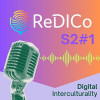
Random Archives, Global YouTube and Rewiring the Net: A Conversation with Ethan Zuckerman | ReDICo: The Podcast for Digital Interculturality
(2025)
keywords:
Ethan Zuckerman
,
Fergal Lenehan
,
Luisa Conti
,
ReDICo
Podcast
Language(s): English
This is the first episode of season 2 "Internet Futures "of "ReDICo: The Podcast for Digital Interculturality". In this episode Fergal Lenehan and Luisa Conti, from the Centre for Digital Interculturality Studies, talk to Ethan Zuckerman. Ethan is a world-recognized expert in the field of the digital and is a professor at the Manning College of Information and Computer Sciences at the University of Massachusetts in Amherst, USA. He has published widely and his book, Rewire: Digital Cosmopolitans in the Age of Connection, originally from 2013, has been highly influential among those who wish to see more connection between the scholarly areas of Internet Studies and Intercultural Communications. The conversation engages with Ethan’s recent work on digital archives and the topic of random archiving, the different uses of the platforms YouTube and TikTok in different cultural contexts, and concludes with a discussion on the future of the Internet as Fergal asks Ethan to re-visit his arguments from 2013 for the present time.
Can the Internet, a tool which can potentially connect people rather than contributing further to polarization, really be rethought for the future in a more cosmopolitan manner?
Listen to find out!
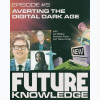
Averting the Digital Dark Age | Future Knowledge podcast
(2025)
keywords:
The Internet Archive and Authors Alliance
Podcast
Language(s): English
Future Knowledge explores the intersection of technology, culture, and information policy with leading authors, scholars, and experts. From copyright and open access to AI and digital preservation, we discuss the big issues shaping knowledge and creativity in the digital age. Recorded live at the Internet Archive Canada in Vancouver, this discussion features historian Ian Milligan, author of Averting the Digital Dark Age, in conversation with Brewster Kahle, founder of the Internet Archive. Guided by journalist Takara Small, the discussion explores Canada’s role in preserving our digital heritage—and why safeguarding born-digital history is more urgent than ever.
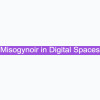
Misogynoir in Digital Spaces
(2025)
keywords:
Dr. Kay Coghill - Virginia Commonwealth University and CUNY Hunter College
Platform
Language(s): English
OER website featuring syllabi, resources and posts. “Misogynoir in Digital Spaces” delves into the critical examination of the unique challenges faced by Black women in the digital realm due to the intersection of misogyny and anti-Black racism, known as misogynoir. Students will explore the historical context, manifestations, and impacts of misogynoir in online environments. Through case studies, discussions, and contemporary examples, participants will gain a deeper understanding of the experiences of Black women online and how digital platforms can both perpetuate and challenge misogynoir. This course fosters awareness, promotes critical thinking, and encourages conversations about equity and inclusion in the digital age.
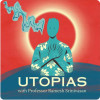
Utopias | podcast with Dr. Ramesh Srinivasan
(2025)
keywords:
Ramesh Srinivasan
Podcast
Language(s): English
What does it mean to be human and alive in our digitally transformed world? How can we recommit to ourselves and others while leveraging technology for our best purposes? How do we double down on our most important human values?
Hosted by tech author, scholar, and thought leader, UCLA professor Ramesh Srinivasan, the Utopias podcast presents a new narrative, a vision of life futures based on a set of conversations that celebrate the work and perspectives of “dreamers”, or those who represent and care deeply for the endless potential for human creativity, expression, and compassion.
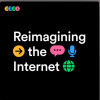
Reimagining the Internet | podcast with Dr. Ethan Zuckerman
(2025)
keywords:
Initiative for Digital Public Infrastructure at UMass Amherst
Podcast
Language(s): English
Our host Ethan Zuckerman introduces iDPI’s new podcast by talking about the need for creating online spaces in the public interest, serving civic good instead of a corporate profit motive. Join us as we interview activists, scholars, journalists, and entrepreneurs reimagining the internet as we know it today.
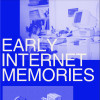
Early Internet Memories zine
(2022)
keywords:
Katie MacKinnon
Other type
Language(s): English
While historical research is comfortable working with
primary sources from the deceased and works well to
reconstruct narratives and imaginaries, historical internet
research must adapt to engaging with the liveliness of the
research subjects. Despite the experiential and conceptual
distance between contemporary internet research and web
materials from the 1990s, there are overwhelmingly strong
connections that put people at risk of harm through
engagement with decades-old material. A feminist ethics of
care for archived web data might thus insist on new ways of
engagement with the creators of materials held in web
archives. Bringing participants into the research about
their own digital traces is more than just obtaining
informed consent; it also creates opportunities to design
methodologies that involve participants’ eagerness and
excitement over revisiting, remembering and unearthing their
digital traces, and significantly, exploring opportunities
for reclamation.

The Lost Media Episode | Jason Scott Talks His Way Out of It podcast
(2024)
keywords:
Jason Scott
Podcast
Language(s): English
Reminding Myself of a Lost Media Show, What is Lost Media, What is Lost, Turn-on, The Thrill of Finding, Endless Uploads, ZIPs inside ISOs, That Old Razzle-Dazzle, Campfire Stories.
Historian and loudmouth Jason Scott shares stories of technology, retrocomputing, documentary filmmaking, and general schennanigans from his decades of travels and research. From experiences on the road while shooting documentaries to often-obscure points of order, Jason keeps a fast-moving pace and even he doesn't know where we're ending up at the end.

Geeks in Cyberspace: a story from the early web
(2019)
keywords:
Michael Stevenson
Video
Language(s): English
Short documentary about the geeks who created Slashdot.org, Everything2.com and Perlmonks.org. Made by Michael Stevenson in 2019 as part of the Dutch research council funded project 'The Web that Was' (project 275-45-006).
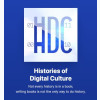
Histories of Digital Culture - Not every history is in a book; writing books is not the only way to do history.
(2025)
keywords:
Steve Jankowski
Other type
Language(s): English
A playlist for students of Histories of Digital Culture including books, podcasts, videos, maps and other resources.
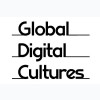
Global Digital Cultures podcast | Programmed Racism with Sennay Ghebreab, Linnet Taylor, Payal Arora
(2020)
keywords:
University of Amsterdam
Podcast
Language(s): English
How do digital technologies mediate racism? It is increasingly clear that digital technologies, including auto-complete function, facial recognition, and profiling tools are not neutral but racialized in specific ways. This webinar focuses on the different modes of programmed racism. We present historical and contemporary examples of racial bias in computational systems and learn about the potential of Civic AI. We discuss the need for a global perspective and postcolonial approaches to computation and discrimination. What research agenda is needed to address current problems and inequalities?
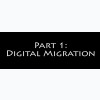
Introduction to Digital Migration with Amanda Alencar and Koen Leurs
(2021)
keywords:
Amanda Alencar
,
Koen Leurs
Video
Language(s): English
As part of a course on Media and Migration Dr. Amanda Alencar and Dr. Koen Leurs present an introduction to Digital Migration.
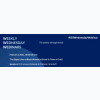
The Digital Lives of Black Women in Britain in Times of Crisis / Webinar with Francesca Sobande
(2021)
keywords:
Oxford Internet Institute
Video
Language(s): English
The Oxford Internet Institute (OII) brings you Dr Francesca Sobande, lecturer in digital media studies and director of the BA Media, Journalism and Culture programme at Cardiff University, hosted by Professor Gina Neff of the OII.
How are the digital experiences of Black women in Britain shaped by various crises (including the COVID-19 pandemic and ongoing antiblackness)? What role does digital remix culture play in memory-making, archiving, and reimagining temporality during times of crisis? In what ways are brands in Britain attempting to align themselves with social justice movements and tap into the digital content and cultural production of Black women? Guided by such questions and based on over five years of research, this session focuses on the digital experiences of Black women in Britain and the rise of brand “woke-washing” which involves commercial organisations pursuing profit under the guise of activism.
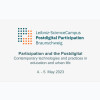
Social Participation in and for a Postdigital-Biodigital Age / Lecture by Petar Jandrić
(2023)
keywords:
Leibniz-Institut für Bildungsmedien | Georg-Eckert-Institut (GEI)
Video
Language(s): English
Prof. Petar Jandrić (Zagreb University of Applied Sciences) addresses the following three topics in his keynote speech: 1) postdigital science and education, 2) the philosophy of bioinformatics, and 3) postdigital knowledge ecosystems. Prof. Jandrić’s research is based on a broad postdigital approach.
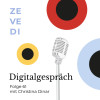
Digital Streetwork: Sozialarbeit in digitalen Räumen / Podcast Digitalgespräche
(2025)
keywords:
Zentrum verantwortungsbewusste Digitalisierung
Podcast
Language(s): German
Chat-Foren, Social Media, Online-Communities – das Internet bietet viele Adressen und Bezugspunkte, die sich als „digitale Räume“ umschreiben lassen. Man kann dort Gleichgesinnten begegnen, sich informieren, seinen Interessen nachgehen – oder aber sehr gezielt bestimmte Personengruppen identifizieren und sogar kontaktieren. Die soziale Arbeit tut dies. Sie hat, angeführt durch Pioniere eines „Digital Streetwork“, das Internet als Zugangsmöglichkeit zu schwer erreichbaren oder besonders vulnerablen Zielgruppen entdeckt. Und obwohl gerade kleine, spezialisierte Netzwerke die Sozialarbeiter als Ergänzung und Entlastung (oft ehrenamtlicher) Content-Moderatoren schätzen und unterstützen, ist aufsuchende digitale Kommunikation noch nicht in der Breite sozialer Arbeit etabliert. Spezifische Kompetenzen, die „digitale“ Sozialarbeiterinnen und Sozialarbeitet für ein glaubhaftes und vertrauenswürdiges Auftreten in Netz-Communities brauchen, sind kaum Teil der Ausbildung. Politische Unterstützung und öffentliche Nachfrage laufen nur langsam an. Allerdings sind auch die Interessen und Geschäftspraktiken großer, kommerzieller Plattformen nicht unbedingt kompatibel mit den Bedingungen für eine seriöse, an professionellen Standards orientierten Sozialarbeit.
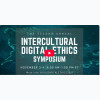
Symposium on Intercultural Digital Ethics - Harvard Carr Center for Human Rights Policy
(2021)
keywords:
Harvard Carr Center for Human Rights Policy
Video
Language(s): English
Recent advances in the capability of digital information technologies—particularly due to advances in artificial intelligence—have invigorated the debate on the ethical issues surrounding their use. However, this debate has often been dominated by ‘Western’ ethical perspectives, values, and interests, to the exclusion of broader ethical and socio-cultural perspectives. Against this backdrop, the 2021 Symposium on Intercultural Digital Ethics will bring together a range of cultural, social, and structural perspectives on the ethical issues relating to digital information technologies, with the aim of broadening the approach of digital and AI ethics. The symposium will be hosted virtually by the Carr Center for Human Rights Policy on November 3 and 4.

BBC The Forum | Libraries in the digital age - discussion with InternetArchive founder Brewster Kahle & other experts
(2025)
keywords:
BBC World Service
Other type
Language(s): English
What is the purpose of libraries in the era of the internet and AI? Whether at a school or in a community, libraries used to be key providers of information and enjoyment for many. But now, in a digital age, more books and periodicals are available online than even the biggest library can hold. If terabytes of text can now be stored on a single laptop, do we need to think differently about the way we access and navigate books? Could well-designed AI tools be trusted to make sense of this information abundance in a similar way that a good librarian can?
